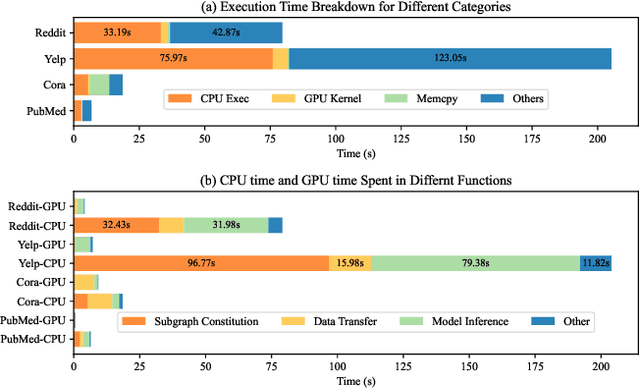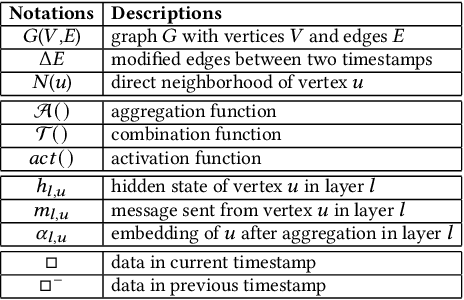InkStream: Real-time GNN Inference on Streaming Graphs via Incremental Update
Paper and Code
Sep 20, 2023



Classic Graph Neural Network (GNN) inference approaches, designed for static graphs, are ill-suited for streaming graphs that evolve with time. The dynamism intrinsic to streaming graphs necessitates constant updates, posing unique challenges to acceleration on GPU. We address these challenges based on two key insights: (1) Inside the $k$-hop neighborhood, a significant fraction of the nodes is not impacted by the modified edges when the model uses min or max as aggregation function; (2) When the model weights remain static while the graph structure changes, node embeddings can incrementally evolve over time by computing only the impacted part of the neighborhood. With these insights, we propose a novel method, InkStream, designed for real-time inference with minimal memory access and computation, while ensuring an identical output to conventional methods. InkStream operates on the principle of propagating and fetching data only when necessary. It uses an event-based system to control inter-layer effect propagation and intra-layer incremental updates of node embedding. InkStream is highly extensible and easily configurable by allowing users to create and process customized events. We showcase that less than 10 lines of additional user code are needed to support popular GNN models such as GCN, GraphSAGE, and GIN. Our experiments with three GNN models on four large graphs demonstrate that InkStream accelerates by 2.5-427$\times$ on a CPU cluster and 2.4-343$\times$ on two different GPU clusters while producing identical outputs as GNN model inference on the latest graph snapshot.
 Add to Chrome
Add to Chrome Add to Firefox
Add to Firefox Add to Edge
Add to Edge